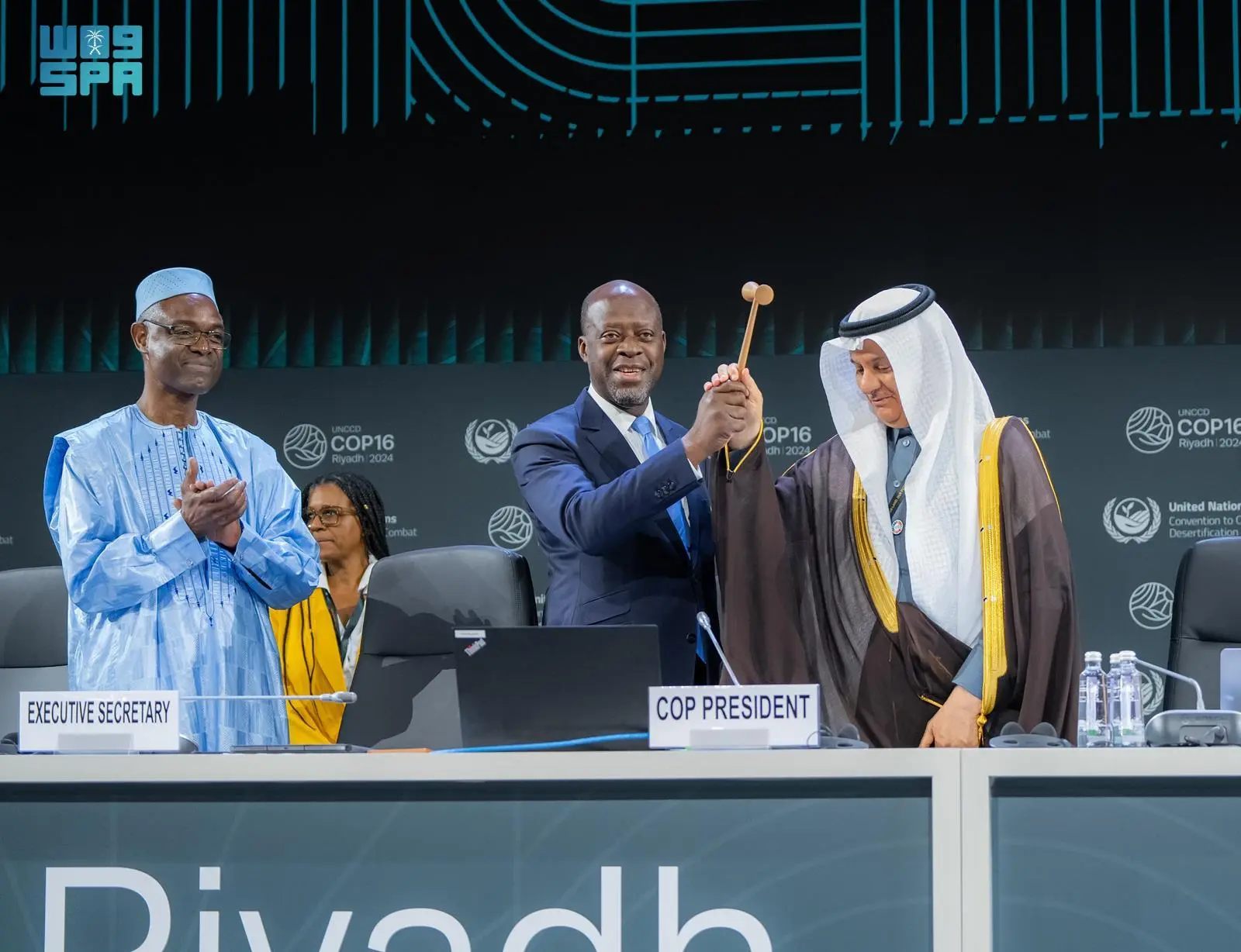The largest-ever meeting of the United Nations Convention to Combat Desertification (UNCCD) kicked off today in Riyadh.
Saudi Arabia, elected for the presidency of the 16th Conference of the Parties (COP16) of the United Nations Convention to Combat Desertification (UNCCD), was officially handed over the presidency during the opening plenary session held in Riyadh today, marking the commencement of a two-year tenure that will be focused on international action on land rehabilitation, reclamation, restoration of fertility and vitality, and combating desertification and drought.
The UNCCD brings together 196 countries and the European Union for a 12-day gathering. UN Secretary-General Antonio Guterres has called it a “moonshot moment”. COP 15 held in 2022 in the Ivory Coast produced a commitment to restore one billion hectares of land by 2030. However, the UNCCD now says 1.5 billion hectares (3.7 billion acres) are now needed protect and restore land and respond to drought amid climate change.
The opening few days of COP16 will see high-profile summits, ministerial dialogues, and announcements to address the pressing challenges associated with land degradation, degradation and drought. Saudi Arabia’s UNCCD Presidency also launched the Riyadh Global Drought Resilience Initiative, intended to accelerate international action on drought resilience, and ensure a more cohesive and proactive global approach to tackling drought.
The One Water Summit will take place in Riyadh on December 3rd to address global water scarcity and water challenges will feature the President of the French Republic Emmanuel Macron, the President of the Republic of Kazakhstan Kassym-Jomart Tokayev, and the President of the World Bank Ajay Banga.
The Saudi Green Initiative Forum will also be held December 2-3 to include hundreds of policymakers, business leaders and subject matter experts from across the world in the dedicated SGI Pavilion in the COP16 Green Zone.
Minister of Environment, Water and Agriculture and COP16 President Abdulrahman Alfadley said that Saudi Arabia hosts the event as part of its endeavor to preserve the environment nationally, regionally, and globally. He noted that over 100 million hectares of agricultural land, forests, and pastures are degraded annually, impacting over 3 billion people worldwide. The economic toll of land degradation exceeds $6 trillion each year.
Alfadley added that the Saudi Green Initiative aims to rehabilitate 40 million hectares of degraded land and expand protected areas to 30% of the country by 2030, a target that was announced by the Kingdom in 2021.
Also occurring is a Saudi youth leaders’ roundtable discussion addressing “Saudi Youth Expectations and Opportunities for COP16,” organized by the Center for Sustainability and Climate at Prince Sultan University in collaboration with the United Nations Development Programme (UNDP) Saudi Arabia.
“This is a critical moment to address land degradation, drought and desertification. For too long these devastating global crises have not received the attention they deserve on the international stage. As hosts, we welcome the world to Riyadh to help find lasting solutions. We will deliver the largest UNCCD COP to date, to mobilize multilateral action on land restoration and drought resilience.”









